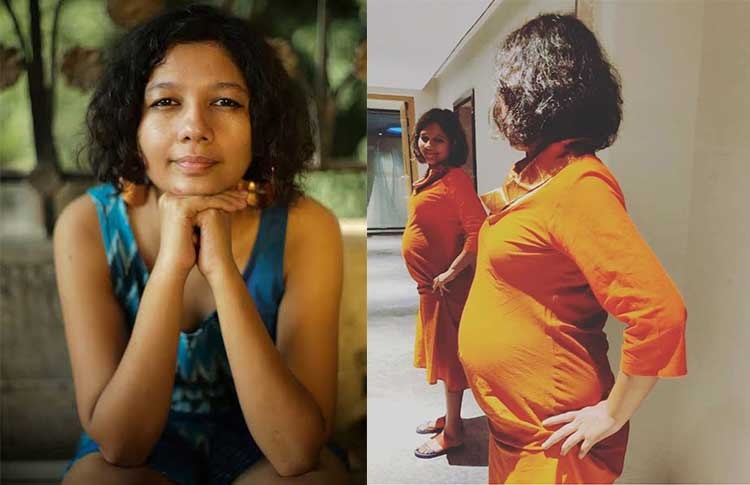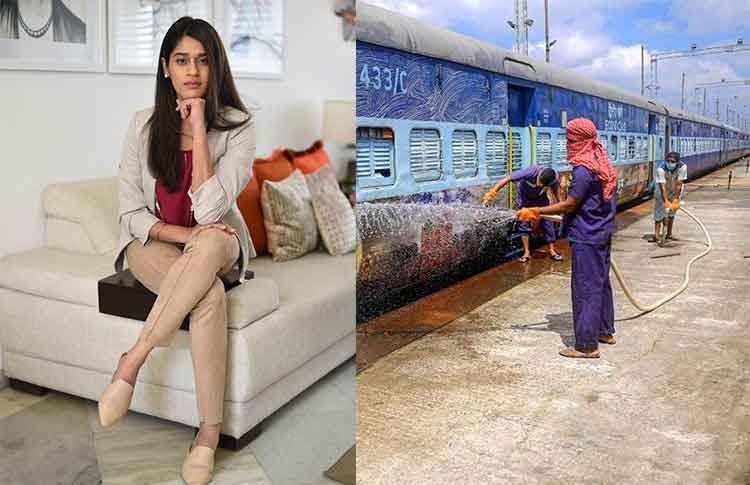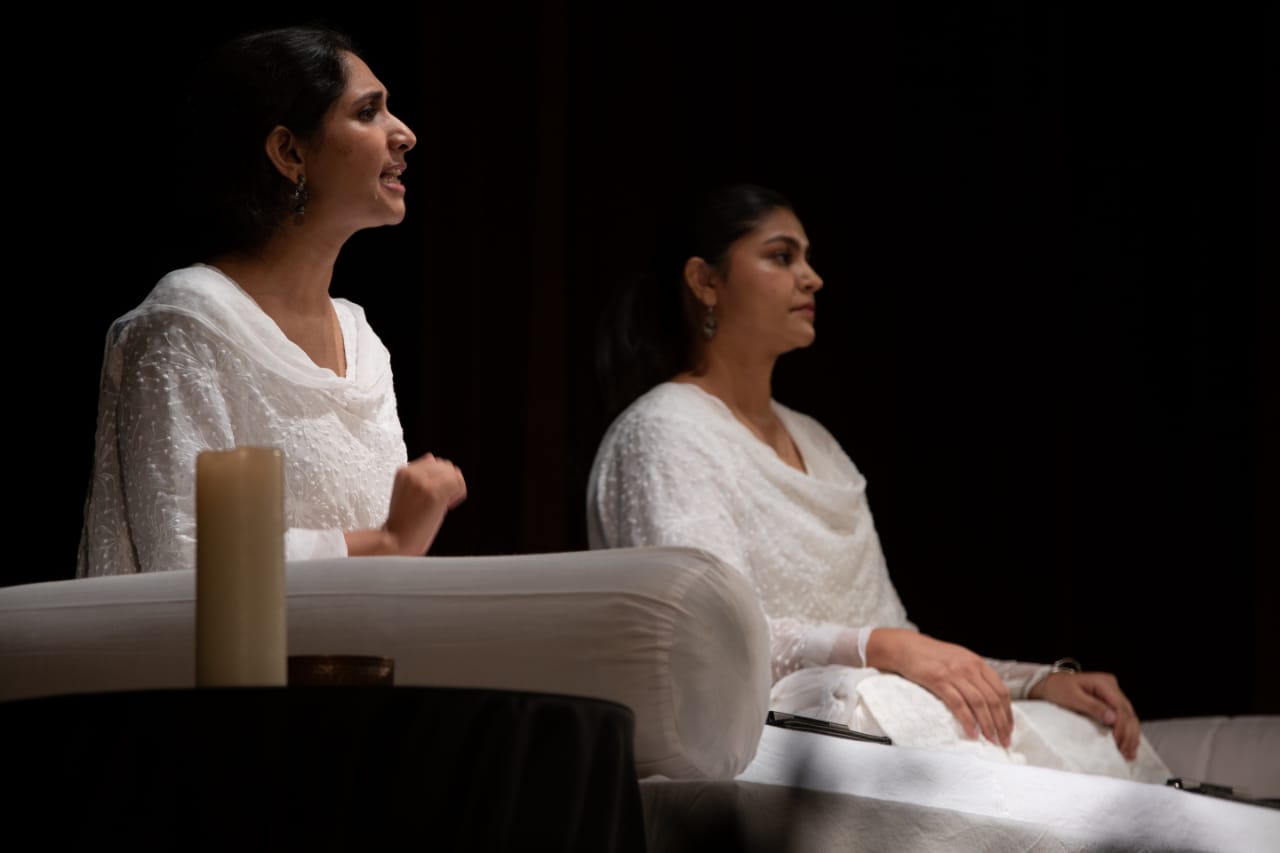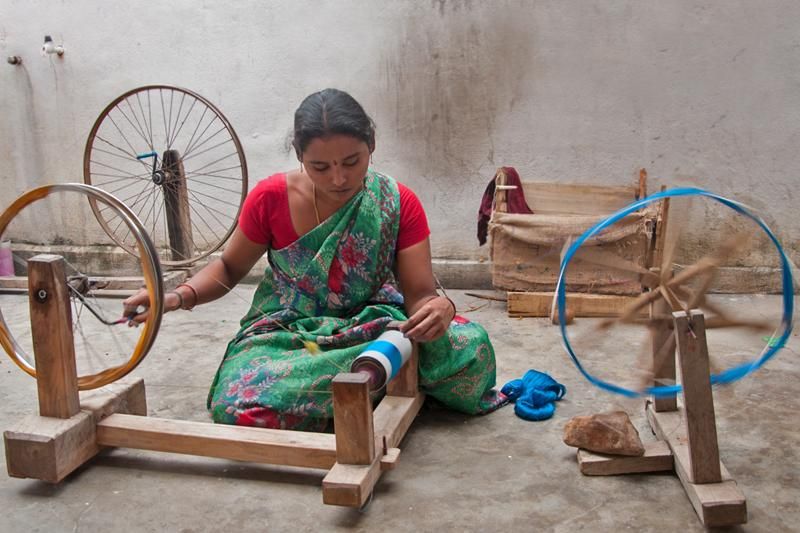Meet India’s First Woman Wheelchair Tennis Para-Athlete Madhu Bagri, Who Fought All Odds To Live Her Passion
- IWB Post
- July 11, 2019

A resident of Ahmedabad, Gujarat, India’s first woman para-athlete to represent the country in an international tournament for wheelchair tennis and the first woman from the country to achieve an ITF wheelchair tennis world ranking, Madhu Bagri was infected with infantile polio at the age of 18 months.
Being the first child in the family who suffered from a disability, it was quite challenging for Madhu’s family to come to terms with it and cope with society’s attitude towards her. Things only got worse, when at the age of 11, she underwent a spinal surgery that confined her to bed for three years during which she had to quit school. However, Madhu’s fighting spirit and her positive attitude towards life helped her in pursuing studies through distance learning and she fought against all odds to complete her education with flying colours.
Apart from excelling in her studies, Madhu was always fascinated by the world of sports. Though there was hardly any awareness about people with disability excelling in sports, Madhu played badminton at her home in her wheelchair. As time went on, she worked with several companies, however, due to a bureaucratic infrastructure and the attitude of people towards a person with a disability, she encountered many struggles that only made her stronger.
It was in 2012 when Madhu was reminded of her passion for sports that led her to invest more time in it, and it was also during this time when she got to know about para sports and started training for tennis. Within a few months into the training, Madhu went on to play internationally and she gained recognition for being the first Indian woman wheelchair tennis player to represent India overseas.
In conversation with Madhu, we got insight into her training sessions, her journey from playing tennis to becoming a para-cyclist, and her take on the support that para-athletes receive from the government. Excerpts:
Being the first child with a disability in the family, it must have been very difficult for your parents to cope with society’s attitude towards you. Tell me what it took for you to gain confidence and pave a path for yourself.
Yes, that’s true. For any family to have a disabled child is a taboo in our Indian society. This attitude was prevalent back in time and it also stands true in the current times. However, the only way out for a person with a disability and the family is to take the fact in their stride and move on and do all that things the person with a disability wants to do, without worrying what the world and society have to say. It’s your journey and you need to sail through it according to your liking.
That’s very well said. So what was your feeling when you attended your first training session in tennis? Do you remember any particular incident of fear or excitement that has stayed with you?
Fear is something that holds you back from doing anything in life. So first and foremost you need to conquer that to lead yourself in an effective manner and I believe this is applicable to every human being. But having said that, for me, sports were always a very fascinating activity and I was super excited when I went for training.
What does your training routine look like?
My routine consisted of six hours of training in tennis and one hour of swimming almost every day. After that when I took up para-cycling. I used to wake up at two in the morning and I practised cycling for almost 50km a day on different terrains.
Tell me about your journey of shifting from playing tennis to becoming a para-cyclist.
I started playing badminton for my fitness in 2012 which eventually led me to play tennis till the year 2016. During that duration, I played for national and international tournaments and earned the title of being the national champion twice. I also hold a Limca book of records for being the first Indian woman wheelchair tennis player to represent India overseas.
In the year 2014, I was also selected in Asian Games but the journey was full of ups and downs as we struggled for the right equipment, tournaments, etc as nobody was ready to support us and it didn’t materialise. After that, in 2016, I suffered from a major injury in my shoulder for which I was operated upon. The recovery period was quite long, and to be able to recover in the same strength was very challenging for me. That’s how I tried my hands at para-cycling, for which I underwent training in Hyderabad for eight months and I was subsequently selected for Asian Para-cycling championship 2018 in Myanmar. There I became the first para hand cyclist from India to win a bronze.
What do you suggest should be done to make sports more accessible for people with disability?
I believe we need a dedicated body to work solely towards para sports without being biased about the sport or the athletes. I would suggest that a body should be made of able-bodied people and a few advisory members who are para athletes/athletes, especially having an open mindset. A change can only be brought in if such steps are taken which would, in turn, encourage more people to take up sports.
For a person to become an athlete, how much financial investment is required for training and what are your thoughts on the support received from the government when it comes to para-athletes?
It’s very sad to say that in India whether para or able athlete, other than cricket, no other sport is given its due importance. For almost 70 percent of the country, sports only means cricket which should not be the case. Coming to government support, I would say it is also very biased as the bodies appointed are a team of people who are biased about athletes or the game/sport. As I mentioned earlier, we need a team of unbiased people who can utilize the resources provided by the government to the optimal use so that each and every one gets a fair chance. Like any career should be rewarding for one to opt-in, the same goes for para sports. It should be rewarding, accepted and it should give one some financial security in life like a job provides, and recognitions like awards, etc.
Our country has immense talent but it’s not nurtured to the right level to get the results. The system lags behind a lot and no proper facilities are provided so that an athlete can give their best. So it’s only our passion towards sports which is making Indian para athletes look beyond the limitations that they encounter in their life and career.
What shift do you think is required in India to make sports more inclusive for women?
Giving women equal respect, opportunity, financial security, proper infrastructure, and safety that they deserve would make sports more inclusive for women.
Are there any special memories that you would like to share from the international tournaments that you have played?
During the awarding ceremonies when my name with our country representation was announced, that was an incredible moment for me. Also, the appreciation that we received from other countries and the respect they had for us made it very special.
- 0
- 0













